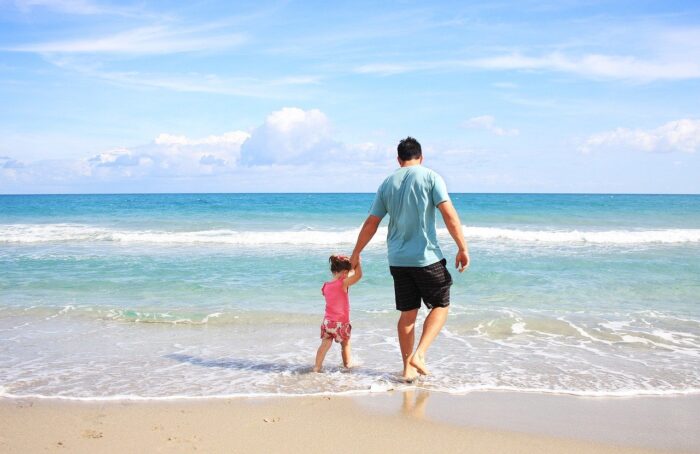
The take-up rates of baby-related leave by men is low with only around half of fathers availing of Paternity leave and a quarter taking Parent’s Leave compared to two-thirds of mothers.
That’s according to a new report by The Irish Human Rights and Equality Commission (IHREC) and the Economic and Social Research Institute (ESRI).
Using a 10% sample of all births between 2019 and 2022, the report analyses the characteristics linked with the take-up of Paternity and Parent’s Benefit, as well as the duration of paid and unpaid Maternity Leave. The findings reveal that higher paid fathers, who are more likely to receive employer top-ups, were more likely to avail of Paternity Leave. Take-up was also higher for those working in larger companies where a replacement might be more readily available.
Paternity benefit is paid to fathers for two weeks and must be taken within six months of the birth of a child.
Parent’s benefit is paid for up to nine weeks (increased from 7 seven weeks in 2024) is available separately for both parents and must be claimed in the two years following the birth of the child.
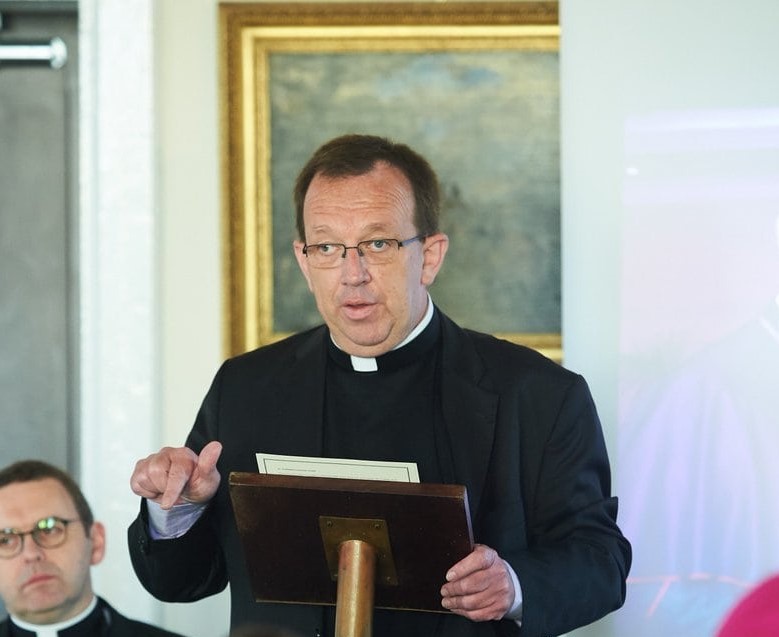
Boards of management of Catholic schools should spend far more time asking the question whether their school is truly Catholic.
That’s according to the bishops’ delegate on educational matters, Bishop Tom Deenihan.
Speaking at the AGM of the Catholic Primary Schools Management Association (CPSMA) in Athlone, the Bishop of Meath asked how would people recognise “that your school is Catholic without a saint’s name in the title?”.
Addressing Boards of Management in particular, he said: “How much time is given to real religious education, food that endures to eternal life in your school? It may be a difficult question and perhaps an unwelcome one but it is an important one and it is our business and our responsibility. What percentage of in-service time, of the annual budget is given to ethos and /or religious education by the Board? To paraphrase the gospel question, has faith now become the prophet not recognized in his own country, literally, the Board agenda?”
“Is your Catholic school the prophet not recognised in its own country or parish. If so, for God’s sake, will someone on the Board ask why?”
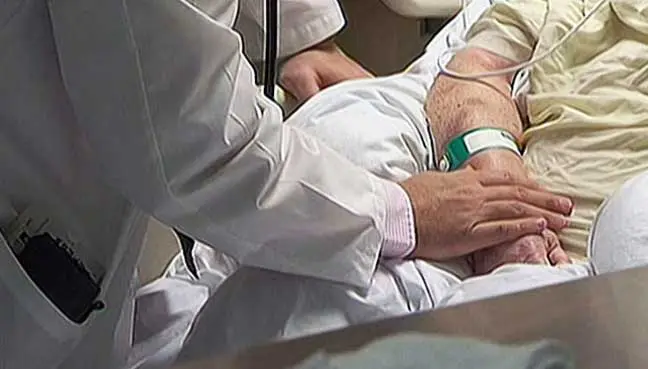
Australian jurisdictions have seen a ‘slippery slope’ of expanding euthanasia and assisted suicide (EAS) in a very short period of time.
It found clear evidence that Australian States are moving down a ‘slippery slope’ away from a system of assisted suicide as practised in the US state of Oregon and towards the widely-criticised situation of euthanasia in Canada.
Lead researcher Professor David Albert Jones said the report should open people’s eyes as to “just how quickly safeguards have been eroded or abandoned in Australia”.
“Rather than an example of the law working well it is an example of what happens when you prioritise access over safety. The practice of Voluntary Assisted Dying (VAD) in Australia is rapidly coming to resemble Medical Assistance in Dying (MAiD) in Canada. It is important for Parliamentarians in the United Kingdom to realise that once you legalise some form of assisted suicide or euthanasia you open the door to later expansion affecting more people and open to more abuse.”
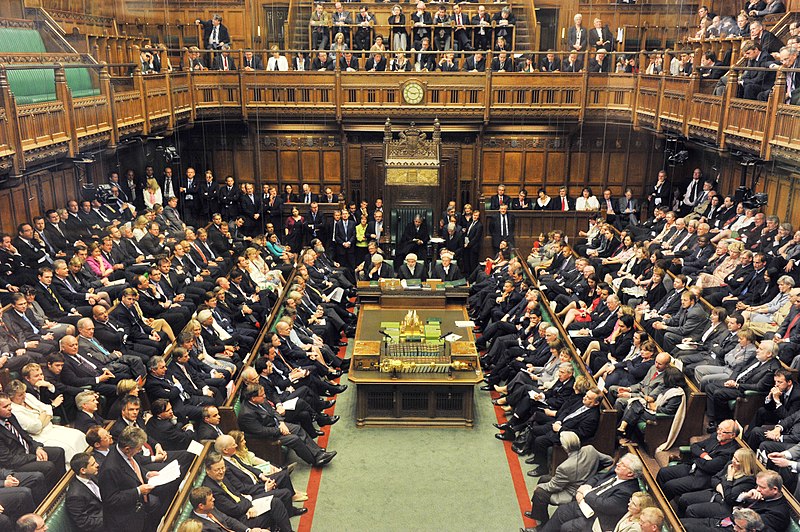
Cardinal Vincent Nichols has decried the “deeply flawed process” to legalise assisted suicide as a bill makes its way through the UK Parliament.
Catholics have a “principled objection” to the change in law as every human life is sacred, said Nichols, the archbishop of Westminster.
But he added that there is a fundamental duty to ensure that legislation is “properly scrutinised”.
He said the Bill would “fundamentally change” many of the key relationships in the way of life in Britain, “within the family, between doctor and patient, within the health service.”
“Yet there has been no Royal Commission or independent inquiry ahead of its presentation. It is a Private Member’s Bill. The Bill itself is long and complex and was published just days before MPs voted on it, giving them inadequate time to consult or reflect upon it. The time for debate was minimal. The Committee examining the Bill took only three days of evidence: Not all voices were heard, and it comprises an undue number of supporters of the Bill. In short, this is no way to legislate on such an important and morally complex issue,” the cardinal said.

The Trump administration has warned the UK Government that it is closely “monitoring” the case of a pro-life campaigner who is being prosecuted for carrying out a peaceful protest near an abortion clinic.
The 64-year-old was charged with infringing a public spaces protection order after holding her sign reading “here to talk” near an abortion facility in Bournemouth, which breached a designated buffer zone. A similar law exists in Ireland.
The US State Department took the unusual step of issuing a statement expressing concern about her treatment.
The Bureau of Democracy, Human Rights, & Labour (DRL) said, “US-UK relations share a mutual respect for human rights and fundamental freedoms”.
“However, as Vice-President Vance has said, we are concerned about freedom of expression in the United Kingdom.
“While recently in the UK, DRL senior adviser Sam Samson met with Livia Tossici-Bolt, who faces criminal charges for offering conversation within a legally prohibited ‘buffer zone’ at an abortion clinic.
“We are monitoring her case. It is important that the UK respect and protect freedom of expression.”

A new study claims that by stressing themes of marriage and family during 16 visits to the region between 1979 and 1996, St. John Paul II was responsible for boosting fertility rates across Latin America, resulting in a quarter-million extra births.
The University of Notre Dame research finds that in the two to five years following each of those trips, an additional 220,000 to 251,000 births occurred in the 13 countries analyzed in the study.
The results also suggest that the measurable impact of his teachings was actually greatest in non-Catholic, wealthy and highly educated households. Effects were also greater in countries secularized more recently.
The paper, titled “Religion and Demography: Papal Influences on Fertility,” argues that beyond the usual economic and cultural reasons given for falling fertility rates across the world since the 1950s, social norms and, specifically, religious values also can play a role.
The outcome suggests that pro-family papal messaging helped cut against over the overall dramatic decline in fertility rates on the continent, which fell from an average of 5.9 births per woman in 1960 to 2.2 in 2010. In many Latin American countries the fertility rate has now gone well below the replacement level of 2.1.

Supreme Court justices from across the ideological spectrum expressed deep concern yesterday about the denial of a state tax exemption for a Catholic charity on the grounds that the nonprofit is not “operated primarily for religious purposes.”
At issue is whether religious freedom extends only to bodies engaged in worship and converting people, or whether it includes a church’s charitable works such as feeding the poor without any requirement to believe or convert.
Defending the narrow interpretation, attorney Colin T. Roth told the justices Wisconsin State limits religious exemptions to those organisations engaged in “distinctively religious activities like worship, ritual, teaching the faith, or spreading a religious message.”
But religious liberty scholars backing Catholic Charities told the justices in a court filing that the Wisconsin Supreme Court “has told Roman Catholics that two commands of their religion are not religious at all — to serve those in need, and to do so regardless of whether those in need adhere to the same religious beliefs”.
During oral arguments on Monday a majority of Judges, including Obama-appointee, Elena Kagan, appeared ready to back the expansive definition of what counts as religious and is entitled to religious exemptions.
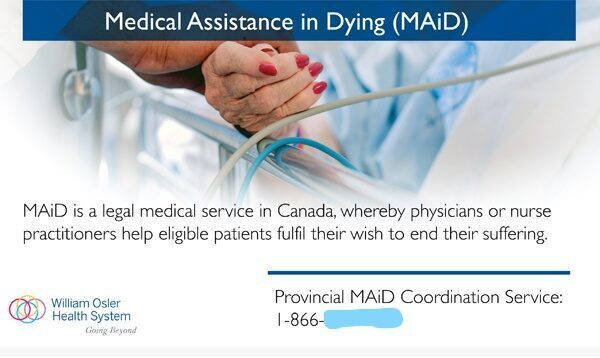
The UN Committee on the Rights of Persons with Disabilities has issued a call for Canada to roll back its expansion of euthanasia, or “medical assistance in dying” (MAiD).
The Committee says Track 2 MAiD, which is for people with disabilities whose deaths are not reasonably foreseeable, is “based on negative, ableist perceptions of the quality and value of the life of persons with disabilities,” and warns it is having disproportionate effects on marginalised Canadians.
The news has been welcomed by Canadian groups.
Rebecca Vachon, Program Director for Cardus Health, said the committee rightly noted that MAiD lacks federal oversight and that it been expanded in Canada without enough consultation with Indigenous communities or adequate protections and supports for people living with disabilities.
Krista Carr, CEO of Inclusion Canada, said the UN “is clear that our country must do better in upholding the rights and dignity of persons with disabilities”.
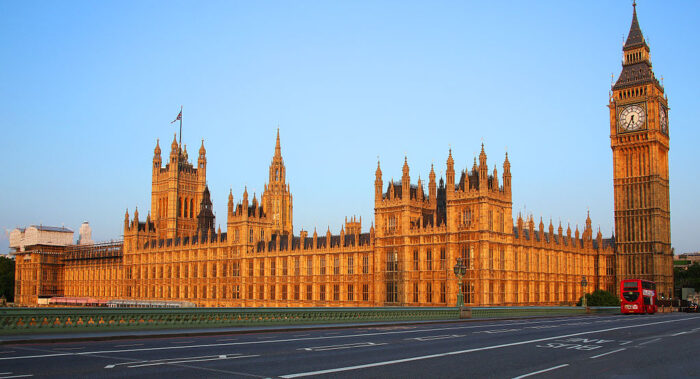
A parliamentary bill that would unleash medically assisted suicide on England and Wales might not be implemented for another four years amid growing concerns about the proposed system.
It was originally thought that the bill might take two years to implement, but Member of Parliament (MP) Kim Leadbeater, sponsor of the bill, said the delay might be as long as four.
Her spokesperson said the bill now contains even stronger safeguards than when it was first tabled, with a new judge-led voluntary assisted dying commission and multidisciplinary panels to examine every application and this would delay the process.
However, the bill has been mired in controversy with prominent media outlets calling for it to be abandoned.
The Times editorialised: “The thankless task of scrutinising this sinister and half-baked proposal has fallen to a few brave MPs on the committee … Thanks to them its flaws have been fatally exposed. It remains only to administer the coup de grace and kill this bill.”
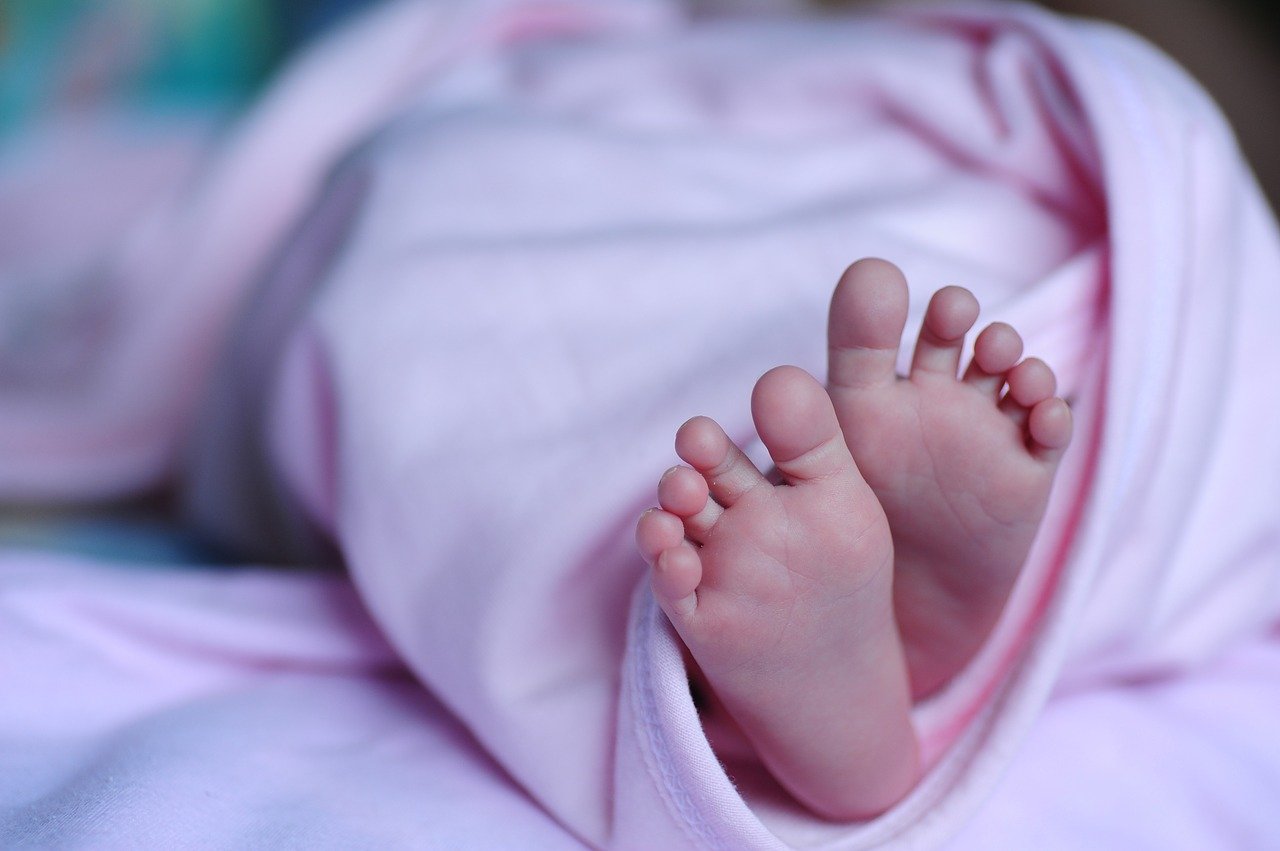
The natural increase in population in the third quarter of last year, that is births over deaths, was almost half what it had been ten years ago, according to the latest figures from the CSO.
Births exceeded deaths by 5,243 in Q3 2024, which was down by 48.6% when compared with the same period in 2014.
There were 39 fewer births registered in Quarter 3 (Q3) 2024 compared with Q3 2023, or a fall of 0.3% to 13,809 births.
The Total Period Fertility Rate (TPFR) was 1.5 which was below the replacement level of 2.1. That’s down significantly from ten years ago when the TPFR stood at 1.9.